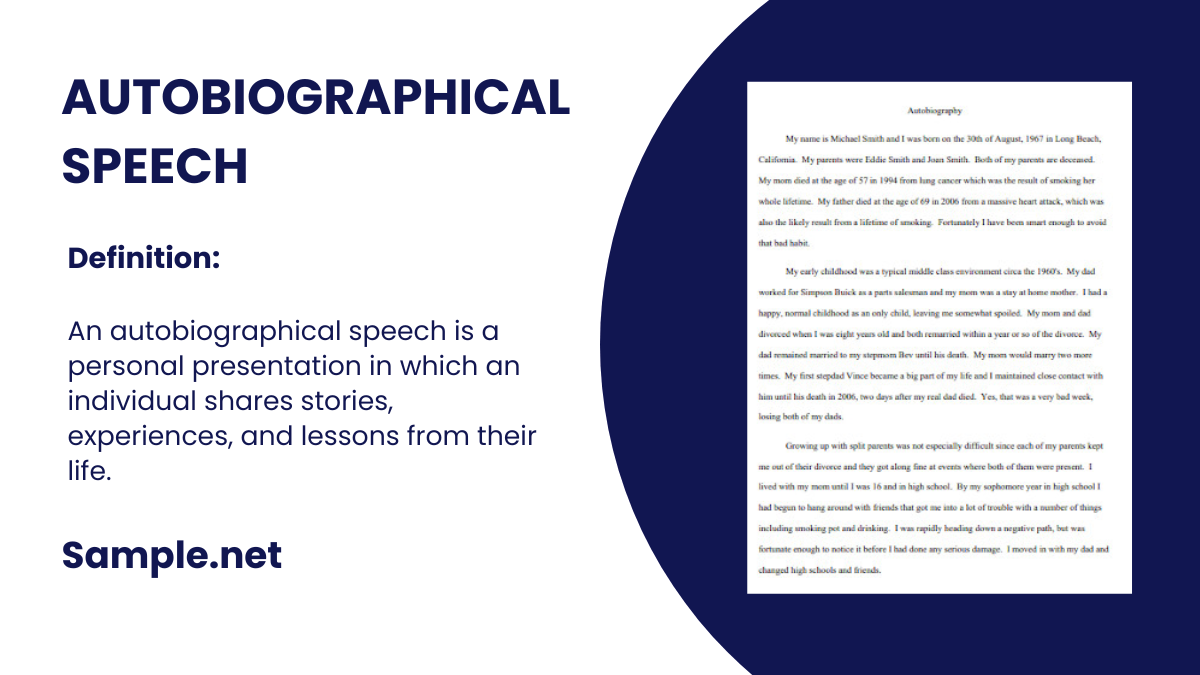An autobiographical speech is a personal presentation in which an individual shares stories, experiences, and lessons from their life. It is commonly used in formal settings like schools, workplaces,…
continue reading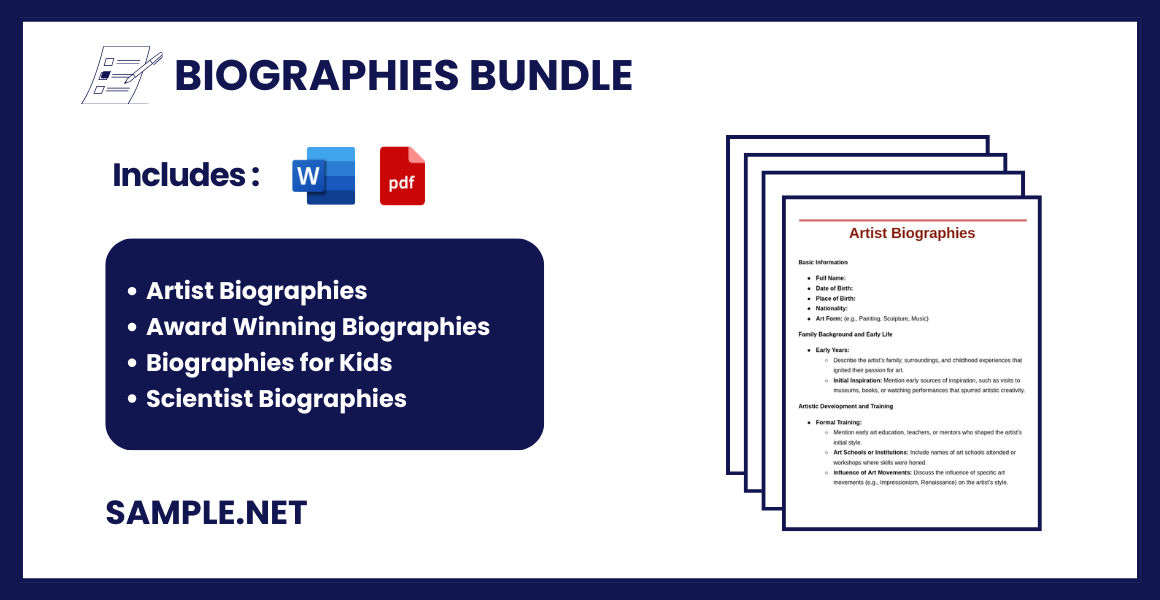
Biography Format
1. Basic Information
- Full Name:
- Date of Birth:
- Place of Birth:
- Nationality:
2. Personal Background
- Family and Early Life: (Details about childhood, family background, and upbringing)
- Education: (Include primary, secondary, and higher education, along with any special certifications)
3. Career Highlights
- Career Start: (How and when the person started their career)
- Major Achievements: (List key milestones, awards, and recognitions)
- Contributions: (Specific contributions to their field, society, or other areas)
4. Personal Life
- Hobbies and Interests: (Include personal interests, hobbies, or passions)
- Philanthropy: (If applicable, any involvement in charitable activities or community service)
5. Legacy
- Impact: (How the person has impacted their field or the world)
- Quotes: (Memorable quotes or sayings by or about the person)
6. Future Aspirations (if applicable)
- Goals: (Mention any future goals or projects)
7. Additional Details
- Fun Facts: (Any unique or fun information about the person)
- Notable Mentions: (Mentions in the media, books, or other sources)
Biographies Samples
-
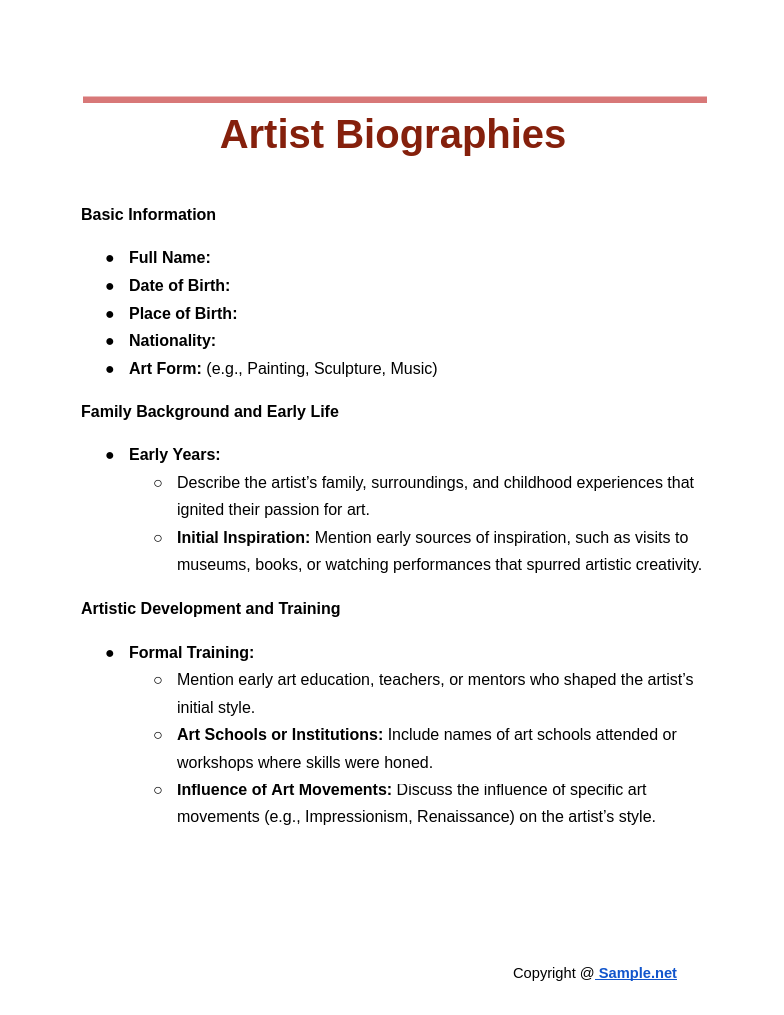
Artist Biographies
download now -
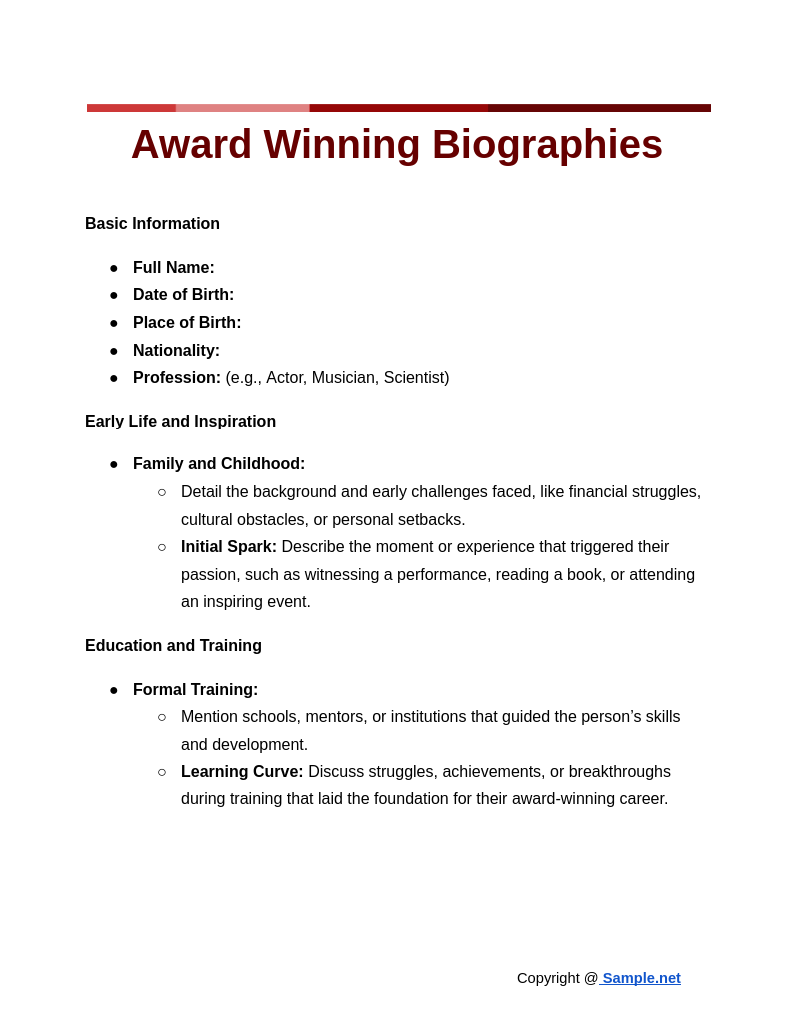
Award Winning Biographies
download now -
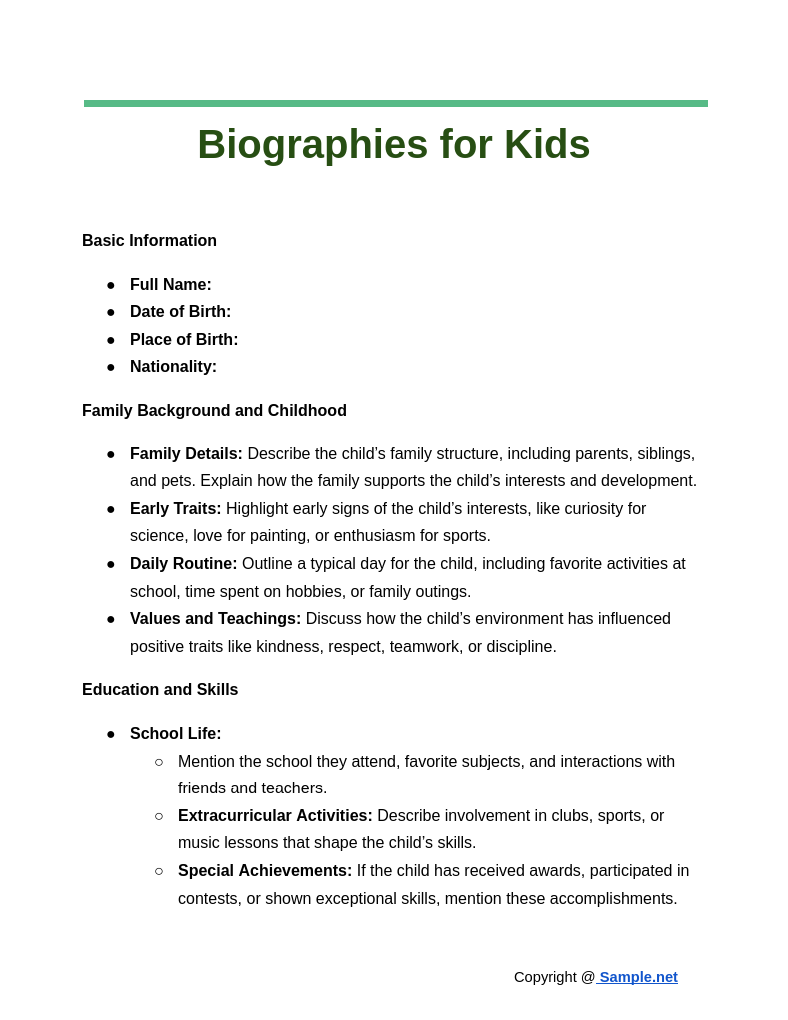
Biographies for Kids
download now -
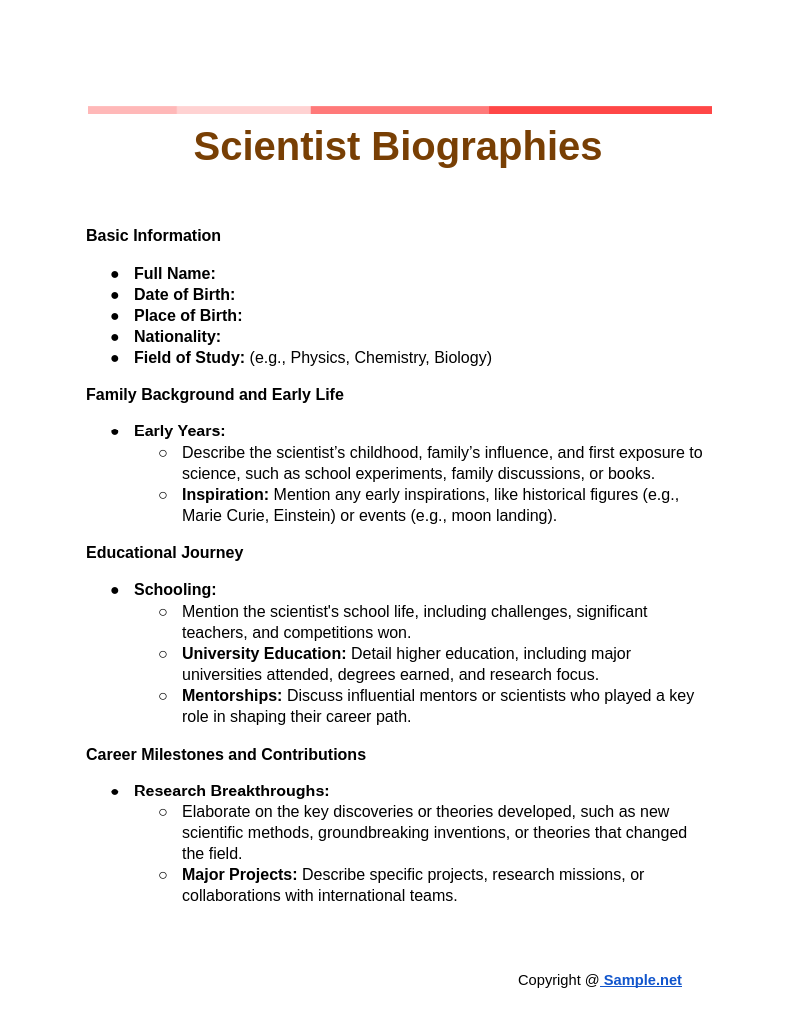
Scientist Biographies
download now -

Biography Flipbook Template
download now -
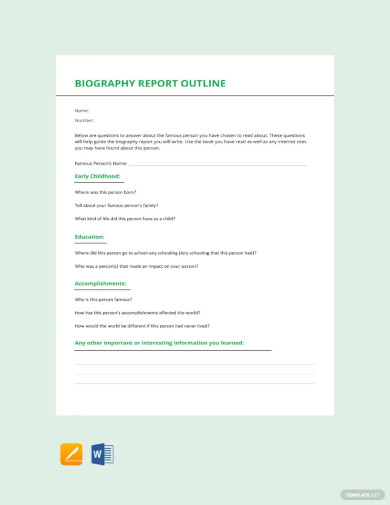
Biography Report Outline Template
download now -
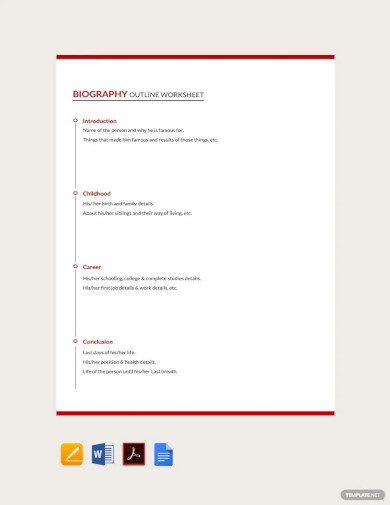
Biography Outline Worksheet Template
download now -
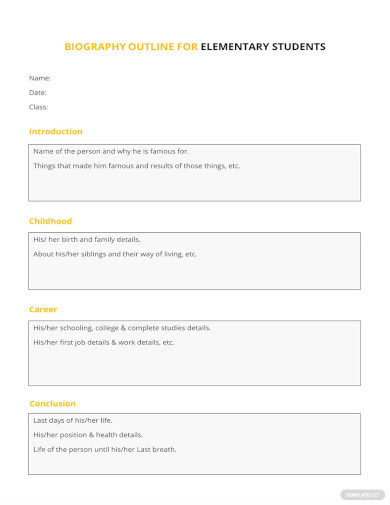
Biography Outline Template For Elementary Students
download now -
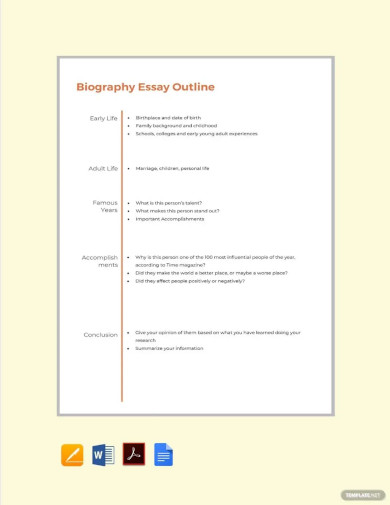
Biography Essay Outline Format Template
download now -
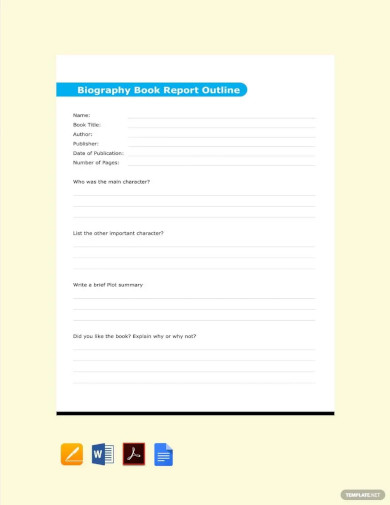
Biography Book Report Outline Template
download now -
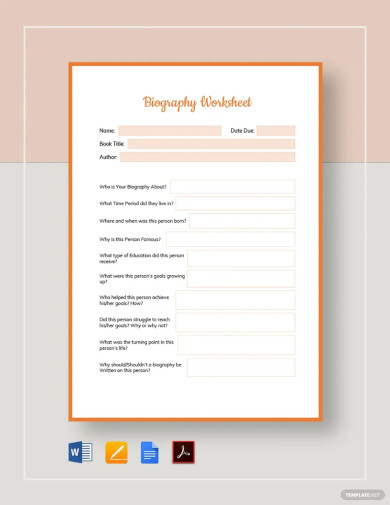
Biography Worksheet Template
download now -
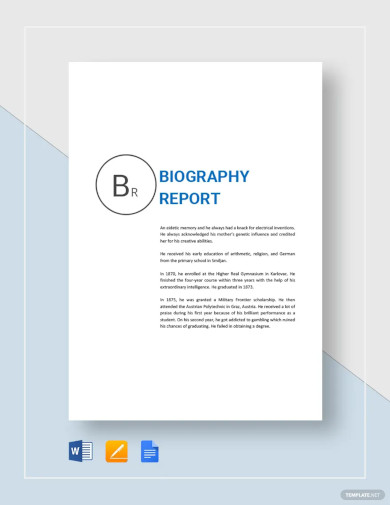
Biography Report Template
download now -
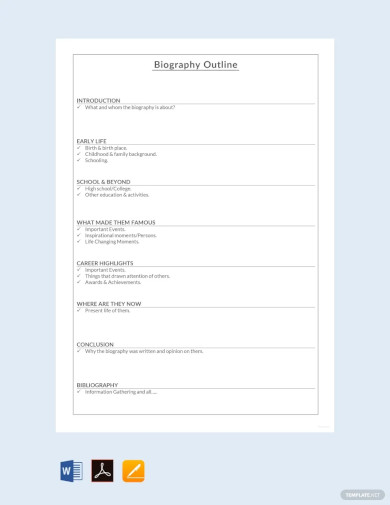
Short Biography Outline Template
download now -
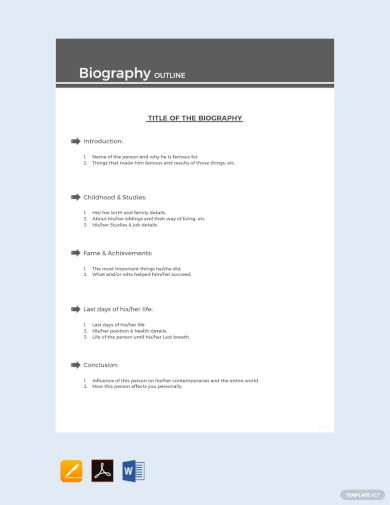
Sample Biography Outline Template
download now -
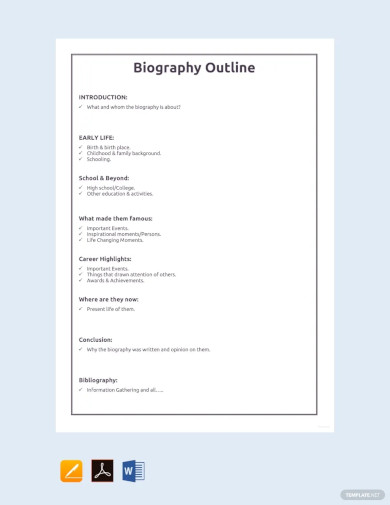
Professional Biography Outline Template
download now -
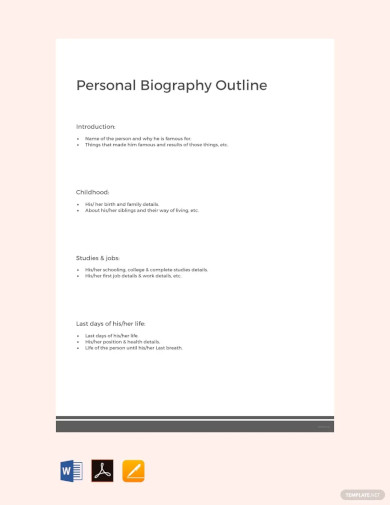
Personal Biography Outline Template
download now -
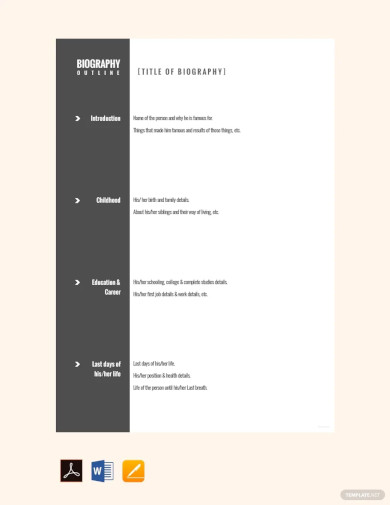
Character Biography Outline Template
download now -
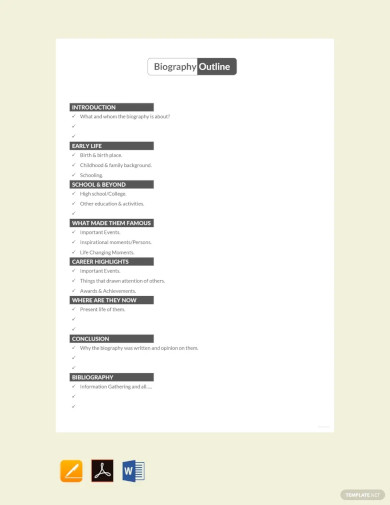
Basic Biography Outline Template
download now -
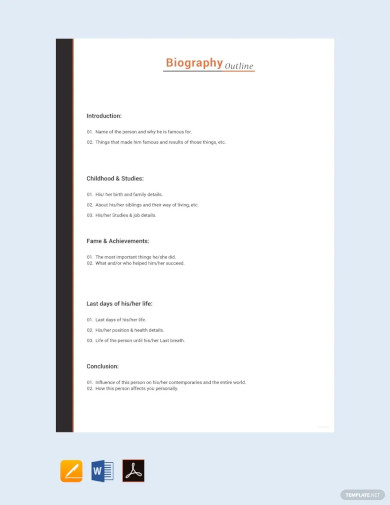
Artist Biography Outline Template
download now -
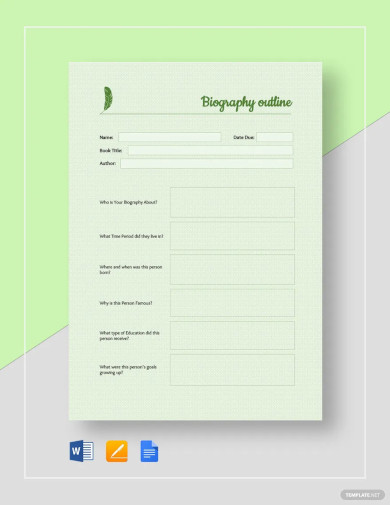
Simple Biography Outline Template
download now -
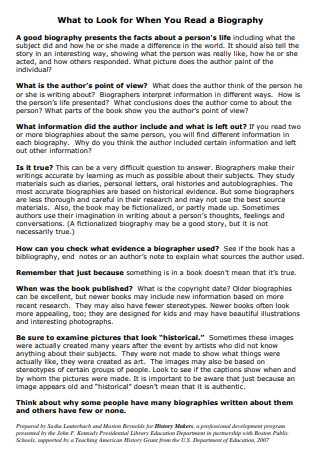
Sample Famous Biography
download now -
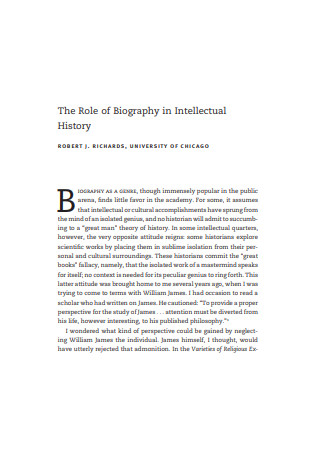
Biography in Intellectual History
download now -
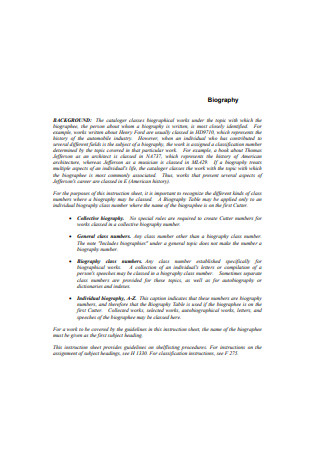
Simple Biography
download now -
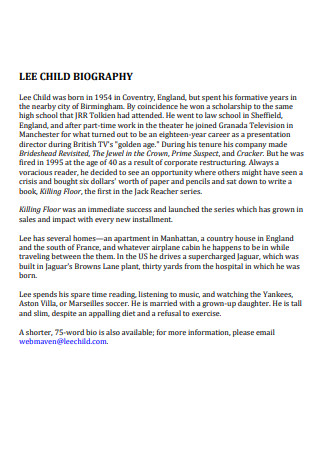
Lee Child Biography
download now -
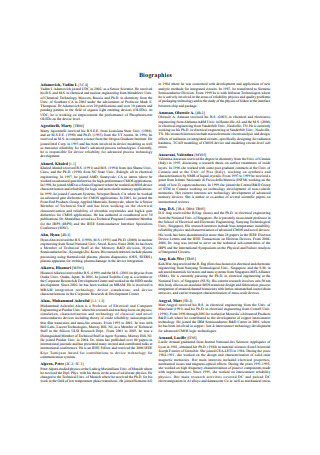
Personal Biographies
download now -
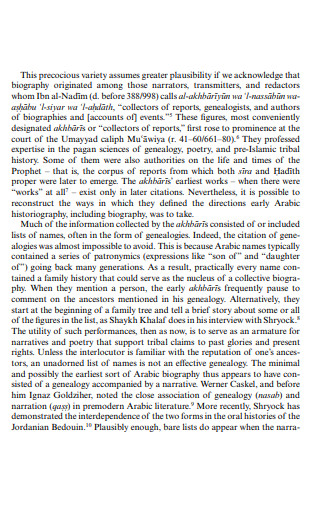
Classical Arabic Biography
download now -
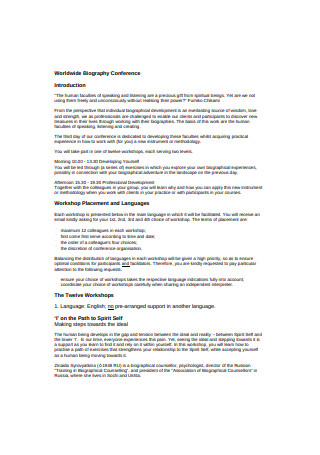
Worldwide Biography Conference
download now -
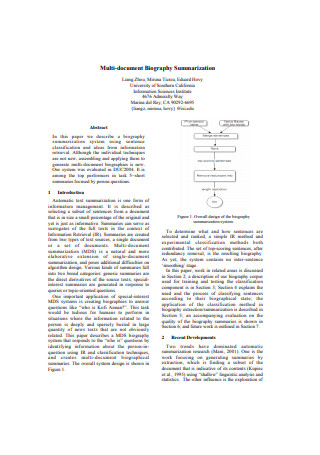
Multi Document Biography Summarization
download now -
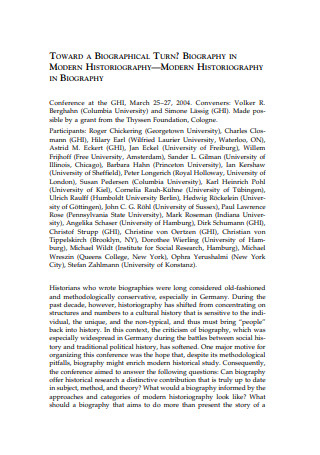
Biography in Modern Historiography
download now -
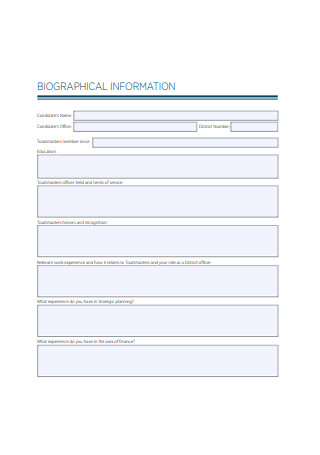
Biographical Information Form
download now -
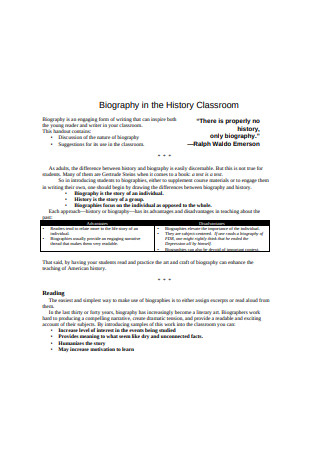
Biography in the History Classroom
download now -
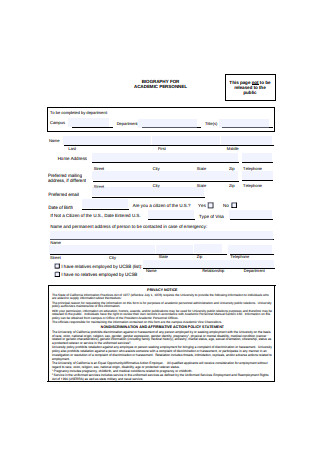
Biography for Academic Personnel
download now -
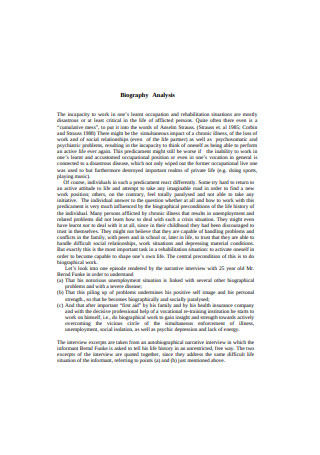
Sample Biography Analysis
download now -
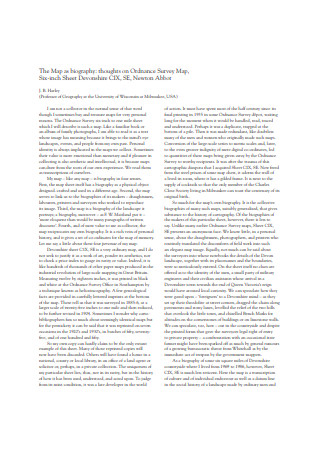
Map as Biography
download now -
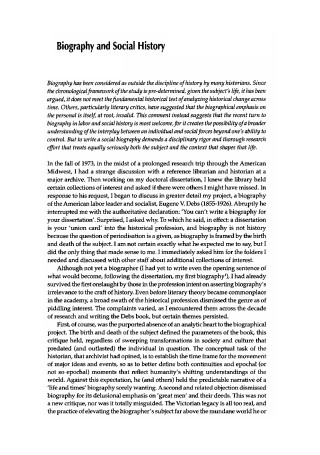
Biography and Social History
download now -
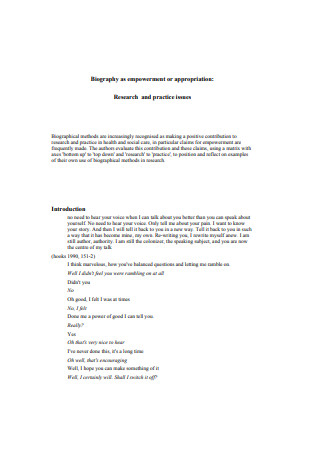
Biography as Empowerment or Appropriation
download now -
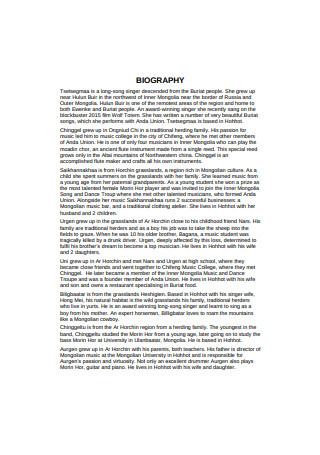
Biography Grade Format
download now -
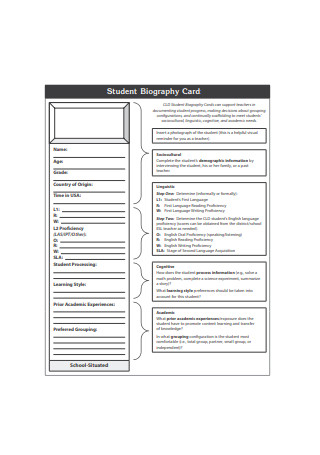
Student Biography Card
download now -
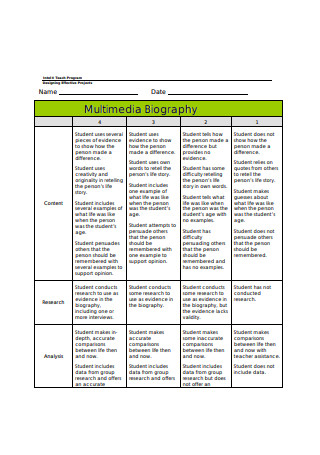
Sample Multimedia Biography
download now -
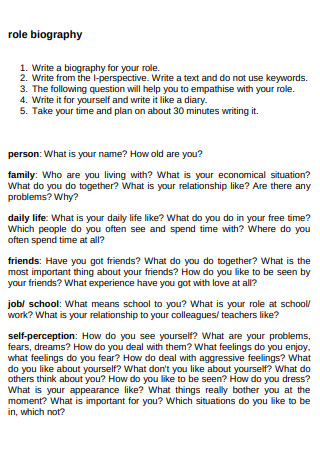
Sample Infographic Role Biography
download now -
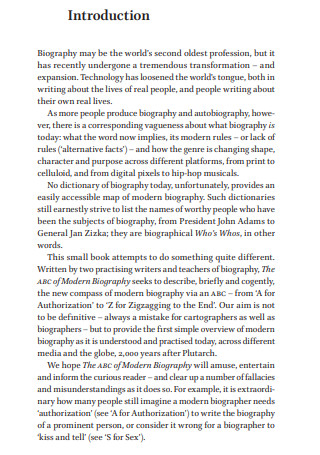
Modern Children’s Biography
download now -
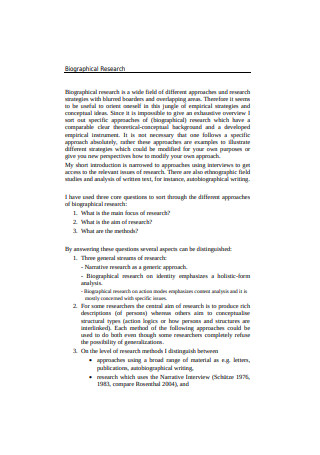
Sample Biographical Research
download now -
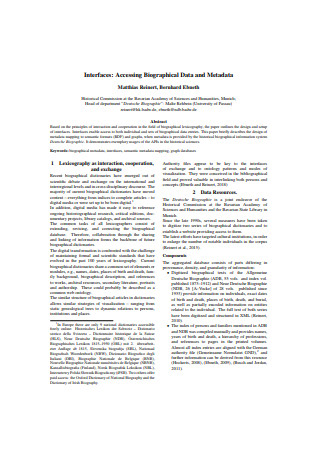
Teacher Biographical Work
download now -
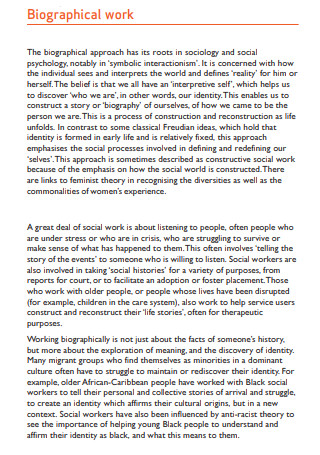
Sample Biographical Work
download now -
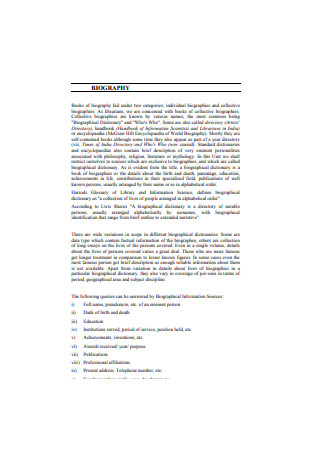
Biographical Sources
download now -
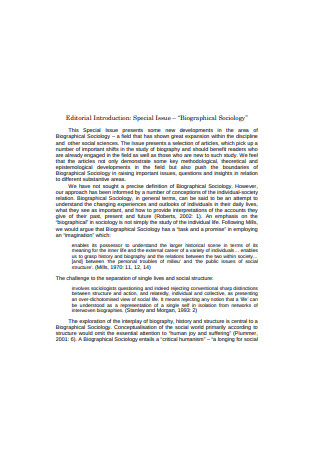
Sample Biographical Sociology
download now -
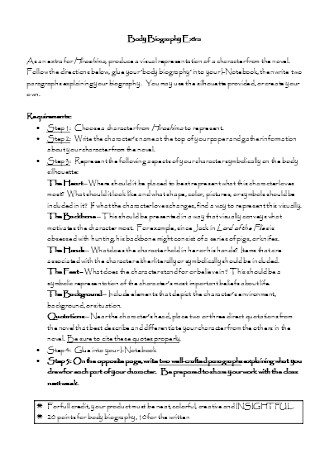
Sample Biography Writing
download now -
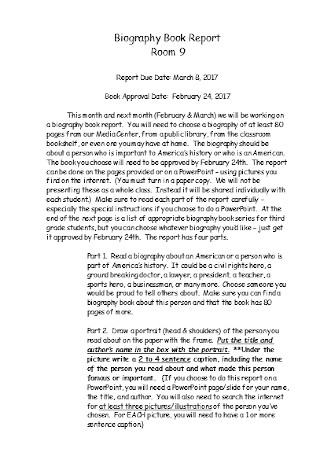
Short Biography Book Report
download now -
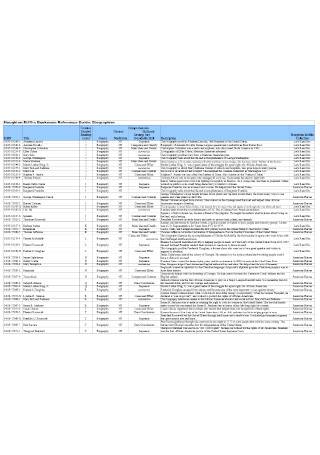
Professional Biography Bookgraph
download now
What Is a Biography?
At times, a biography serves as a branch of history, but biography in literature far encompasses the chronological account of a person’s life. It holds a place among the oldest forms of literary expression. And by the looks of it, biographies and books, in general, aren’t going to be displaced by other types of storytelling just yet. While the world remains to think and read, the global market for books is still massive, with 675 million books in print sold last year based on Statista market data. Among those were 10,842 books in the biography category, including new editions.
Every memoir, biography, and Autobiographies should have a narrative unique to the person telling it or whoever it is about. You want a narrative kept in bookshelves, among the best books readers have in possession. A large number of biographies are about famous athletes, political figures, celebrities, and so on. Newsweek’s list of the 75 Best Biographies of All Time, features a great selection of real-life stories about key figures in history from Nelson Mandela to Anthony Bourdain. Since biographies are historic in their own right, readers can choose to read books about the lives of a diverse group of men and women in literature, politics, science, and the arts.
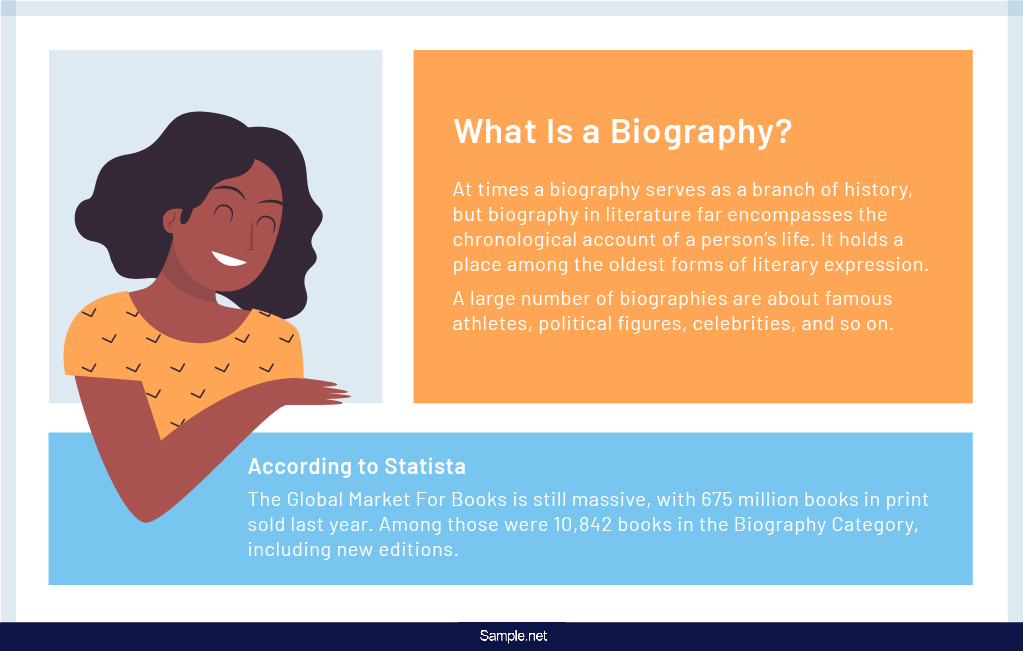
Types of Biographies
The earliest accounts of great men, such as Plutarch’s Parallel Lives, detailed the lives of empire leaders. Biographies should also include factual information about the person’s or subject’s motivations in the most monumental periods of his life. And while most are about people who are already household names, you can also write a biography of someone who may not necessarily be a historical or cultural figure, but whose life is nevertheless worth telling for its narrative value. You can also see more on Biodata Form. To further avoid confusion, here are the types of biographies you can read:
Whether it’s a personal or academic task, it’s important to write only about someone whose story you want to tell. You also need a proper biography project planning or writing strategy. A biography worksheet template won’t hurt either, to keep track of your progress. You may also want to use schedule templates to help you organize this task.
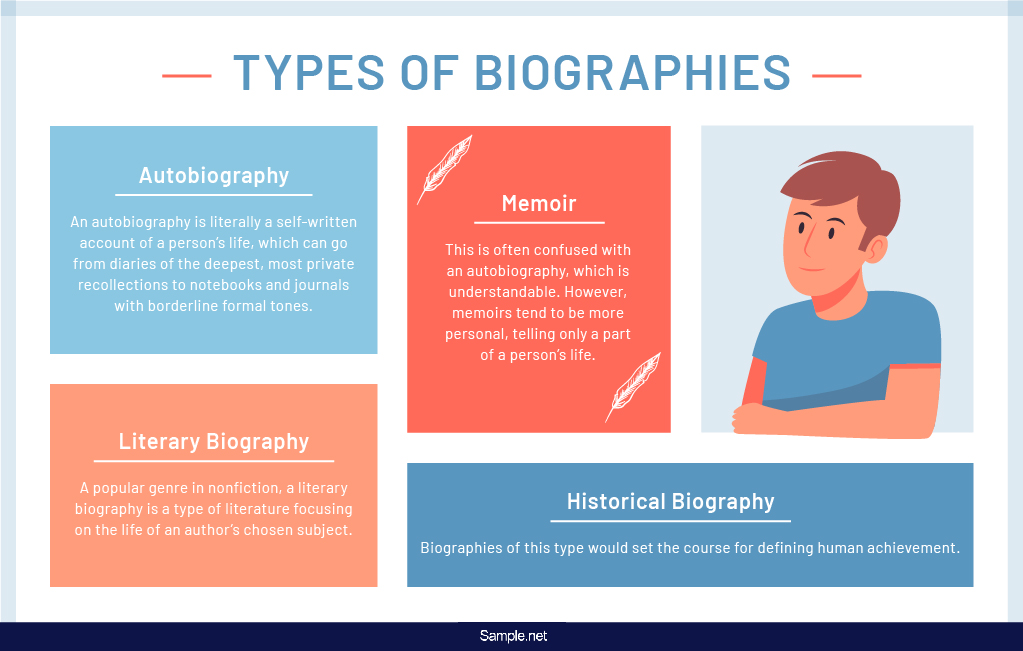
How to Write a Memorable Biography
Much of the challenge that comes with writing a biography, especially for long-dead subjects, is the amount of research involved in it. Depending on who your subject is, the lack of paper trail, evaluation, and traceable records or parts to include can be time-consuming on top of being mentally exhausting. You can also see more on Self Evaluations. Here are some steps to guide you further in writing a biography worthy of the Franks and the McCourts of this generation:
Step 1: Choose a Subject
It’s always a good idea to have a project plan if you want your biography to have commercial value. Write about people or a person whose ideals, interests and, to some extent, experiences match yours. If you have ambitions of a rags-to-riches biography of a homegrown football superstar but don’t understand the fuss about the game, then you’re setting yourself up for failure. Many people—readers and authors alike—don’t realize the richness of scope that a well-written biography requires. It is challenging to get started because you have high hopes that your writing can do justice to your subject’s story, and rightfully so. So choose someone whom you can pour all your writing for. But you must first make sure that you have access to the information you’ll need.
Step 2: Look for Primary Sources
When it comes to complicated projects and subjects, a little ignorance can work in your favor. Because it is when you get to unfold the parts you need, piece by poignant piece, that you’ll figure out how your narrative will take shape. Evaluate the amount of both people and paperwork to cover the most important parts of your task. Check local archives. Go to the places where your subject spent most parts of his or her life. For instance, writing about leaders like Mandela would mean visiting prison cells. Or reading Invictus and feeling the courage and power of every word. This is because it would be a shame to be so out of touch with your subject’s life, and that’s what your readers would feel too if you fail to bring them to the scenes.
Step 3: Conduct Interviews
Probably the most challenging part of your preparation, getting firsthand accounts from people close to the subject will depend on your sources’ willingness to contribute to the project. This will also depend on whether or not your subject is living or deceased. If it’s the former, then your best shot at developing a good story and interview schedule with the subject. Doing so may encourage the willingness of family and friends to grant you interviews or written blank statements, depending on the information you want or need.
Be careful not to get overwhelmed with too much praises (or criticisms, for that matter) that you’ll forget the unique perspective required for a compelling biography. From the onset, you must have an editable list of what part of the person’s life you want to narrate, and which parts you need to leave out. Even if some parts don’t warrant leaving out, you cannot fit a person’s whole life in one book, especially if there are already existing materials about him.
Step 4: Reflect and Write an Outline
Written at a time when there was little to no record of what went on in the world—when man’s first tastes of civilization came from battles of wits and arms, Plutarch wrote an epic characterization of the heroes and villains of his time. Parallel Lives became a touchstone for biographies to follow. And though it came from someone who bore witness to the victories and crimes of the 1st century, it still took a great deal of reflection and painstaking raw writing to structure the biography as a cross between life stories and a rich history book.
You may be far from being Ancient Greece’s life-writing revolutionary, but having an idea of the focus you want for your biography will be a fundamental starting point. Create a simple outline of the parts of the subject’s life that you think needs to be highlighted more. For example, how do you plan to put a voice to the story of a world-renowned scientist who was also a famous first-class recluse?
Step 5: Organize and Start the Process
This is where it gets tricky since you’re trying to fit the life of a person—or one good chunk of it, in a book. You also want to end up with an interesting and compelling read. Otherwise, you would have failed to give the work you started and its subject, the justice they so deserved. So, filter your paperwork well and get rid of the information you don’t need. As with any forms of writing, you must weed out the parts that won’t help with completing a well-written, clearly structured story. This means focusing the pieces of the subject’s life in their development as a person and what made them worthy of a biograph. You can also see more on Outline Samples.
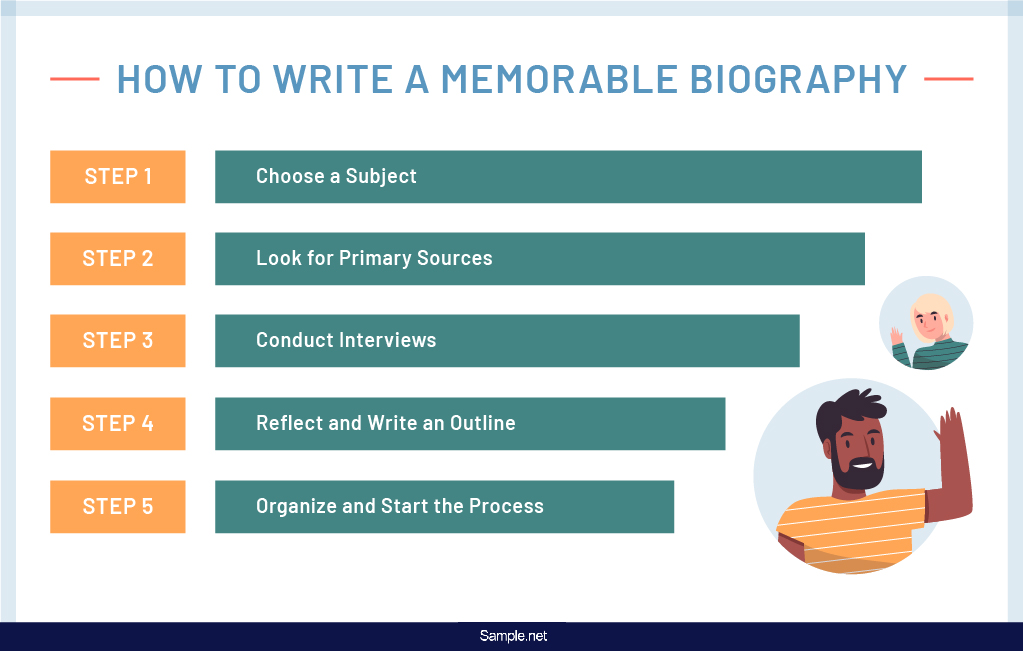
Biographies provide a fascinating glimpse into people’s lives, enabling readers to learn from their experiences and derive inspiration. They are not just a record of events but a powerful storytelling tool that brings individuals’ journeys to life. Writing a good biography requires thorough research, structured storytelling, and a focus on personal insights. You can also see more on Script Format Samples.
FAQS
What differentiates a biography from an autobiography?
A biography is written by someone other than the subject, while an autobiography is written by the subject themselves or with the help of a collaborator.
How do you choose which details to include in a biography?
The choice of details usually depends on the significance and relevance to the subject’s major life events and achievements. The aim is to highlight the most impactful parts of their life and their contributions to society.
What makes a good biography?
A good biography not only provides factual accuracy but also tells a compelling story. It should capture the essence of the person, making their life story engaging and insightful for the reader.
Where can I find reliable biographies?
Reliable biographies can be found in libraries, bookstores, reputable online platforms, and academic journals. It’s beneficial to look for works published by established authors and reputable publishers.
What ethical considerations are involved in writing a biography?
Ethical considerations in biography writing include respecting the privacy and legacy of the subject, avoiding sensationalism, and maintaining accuracy in depicting their life events. Biographers often face decisions about how to fairly represent less flattering aspects of a subject’s life without causing harm or distress to living relatives.
